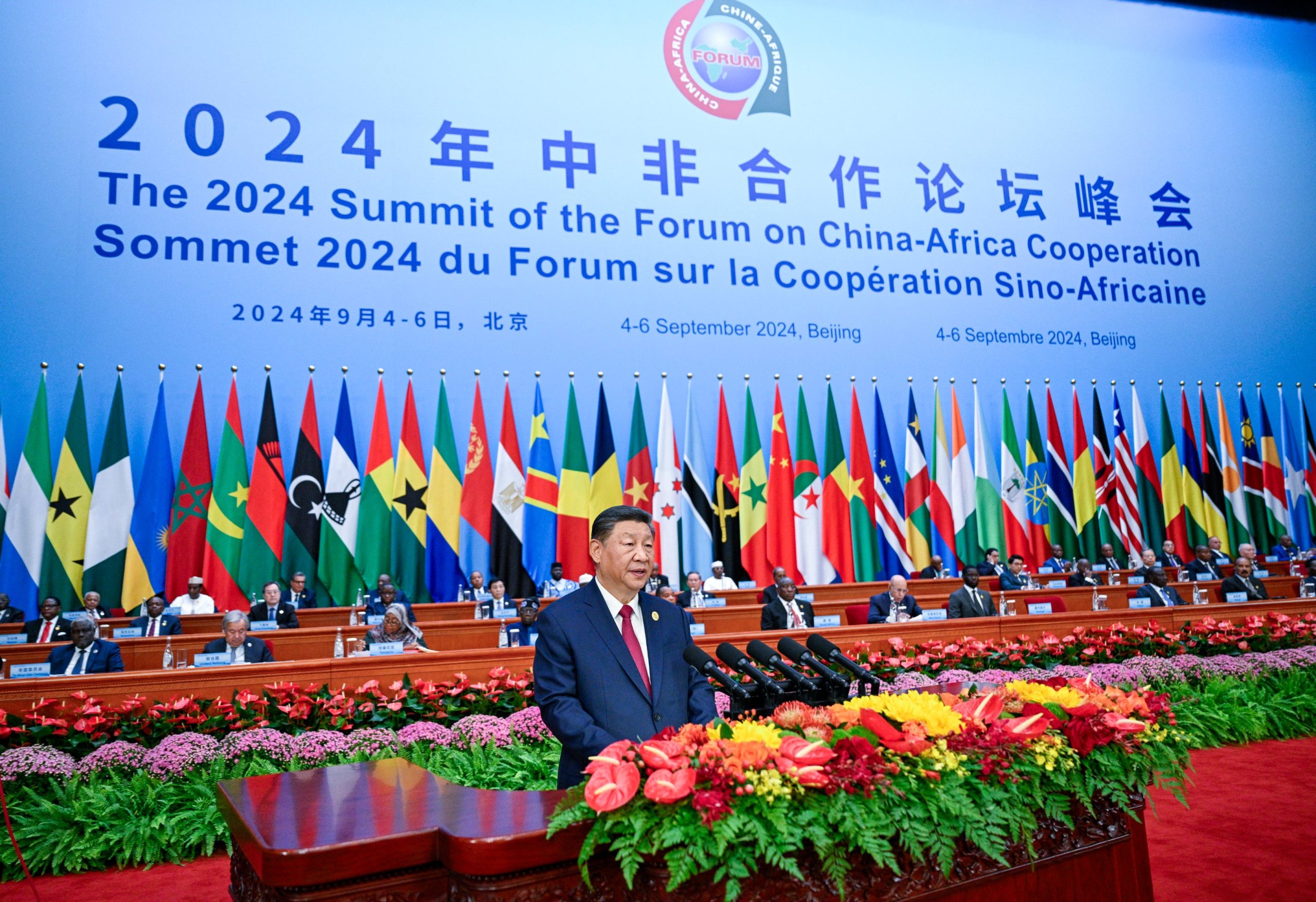China’s President, Xi Jinping, has announced that over the next three years, China will provide RMB350 billion (over $50 billion) financing to Africa.
Speaking at the 2024 Forum on China Africa Cooperation (FOCAC) Summit in Beijing, President Xi stated that these funds will primarily be used to implement projects under ten development programs that will be carried out between 2025 and 2027. Of this amount, RMB210 billion ($30 billion) will be allocated as a credit line to Africa, RMB80 billion ($11 billion) will be provided as financial assistance in various forms, and at least RMB70 billion ($10 billion) will be invested by Chinese companies in Africa.
President Xi highlighted that the establishment of the FOCAC framework has been a significant milestone for China-Africa relations, emphasizing China’s collaboration with African countries over the past 24 years based on sincerity, real results, amity, and good faith. He reaffirmed China’s commitment to defending their legitimate rights and interests during this era of global changes.
President Xi stated, “We get stronger and more resilient together by riding the tide of economic globalization, delivering tangible benefits to billions of ordinary Chinese and Africans.”
The $50 billion loan and financial assistance will be distributed across ten major programs aimed at accelerating Africa’s modernization journey over the next three years.
He said China is ready to partner with Africa to establish a platform for governance experience-sharing, a China-Africa knowledge network for development, and 25 centers specializing in China-Africa studies.
President Xi also expressed China’s willingness to utilize Africa’s leadership academies to develop governance talents and facilitate exchanges of experience in party and state governance by inviting 1,000 members of African political parties to China.
Secondly, Xi said China intends to voluntarily and unilaterally open its market wider, providing all Least Developing Countries with diplomatic relations with China, including 33 countries in Africa, with zero-tariff treatment for 100 percent tariff lines.
He emphasized that China’s move makes it the first major developing country and major economy to take such a step, opening up opportunities for African countries in China’s large market.
President Xi pledged that China will further expand market access for African agricultural products, strengthen cooperation with Africa in e-commerce and other areas, and launch a “China-Africa quality enhancement program.”
In the field of security, Xi announced that China will contribute RMB1 billion ($143 million) to Africa for military assistance through the Global Security Initiative (GSI). Additionally, China will provide training to 6,000 military personnel and 1,000 police and law enforcement officers on the continent. Joint exercises and training will also be conducted by security personnel from both sides to enhance their capabilities.
Simultaneously, Xi emphasized China’s commitment to promoting comprehensive China-Africa economic and trade cooperation. To this end, China will launch an “African SMEs empowerment program” aimed at establishing a digital technology cooperation center and initiating 20 digital demonstration projects. Xi believes that these initiatives are crucial for facilitating Africa’s industrial transformation.
Furthermore, China will continue to implement infrastructure projects in Africa. This will commence with 30 infrastructure connectivity projects, forming a network that encompasses both land-sea links and coordinated development.
During his speech at the Great Hall of the People in Beijing, Xi expressed China’s readiness to assist in the development of the African Continental Free Trade Area, deepen logistics and financial cooperation in order to foster trans-regional development in Africa. He also highlighted China’s willingness to enhance cooperation with Africa under the Global Development Initiative, with a focus on implementing 1,000 livelihood projects.
Xi emphasized the importance of health cooperation between China and Africa. He pledged to collaborate in the establishment of alliances between hospitals and joint medical centers. Additionally, he encouraged Chinese companies to invest in Africa’s pharmaceutical production and assured ongoing support for Africa in epidemic response by sending 2,000 medical experts.
In addressing food security, Xi announced that China will provide Africa with RMB1 billion ($143 million) in emergency food assistance. Furthermore, China plans to build approximately 6,670 hectares of standardized agriculture demonstration areas in Africa, deploy 500 agricultural experts to the continent, and establish a China-Africa agricultural science and technology innovation alliance.
Xi reiterated China’s commitment to community welfare in Africa through the implementation of 500 programs. He also expressed support for two-way investment between Chinese and African companies, aiming to enable Africa to retain added value and create at least one million jobs.
President Xi affirmed China’s commitment to Africa by announcing several initiatives. These include launching 30 clean energy projects, establishing meteorological early warning systems for disaster prevention, and biodiversity conservation
“We will create a China-Africa forum on the peaceful use of nuclear technology, establish together 30 joint laboratories, and collaborate on satellite remote sensing and lunar and deep-space exploration. All this is designed to help with green development in Africa,” he noted
The President noted that China also aims to strengthen vocational education cooperation, engineering technology academies, and Luban Workshops in Africa. The country is providing 60,000 training opportunities, mainly for women and youth. Furthermore, China will launch a Cultural Silk Road program and cooperate on innovation in radio, TV, and audio and visual programs.
President Xi believes that Africa’s reawakening and progress toward modernization align with the AU’s Agenda 2063. He said China and Africa’s joint pursuit of modernization will not only influence the Global South but also shape a future community fostering shared prosperity for mankind.




